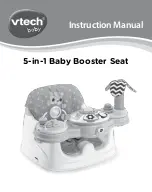
PAGE 3 OF 4
MATERIAL SAFETY DATA SHEET
LITHIUM IRON PHOSPHATE BATTERY
SECTION 7: HANDLING AND STORAGE
The batteries should not be opened, destroyed nor incinerate since they may leak or rupture and release in the environment the ingredients they
contain.
HANDLING:
Do not crush, pierce, short (+) and (-) battery terminals with conductive (i.e. metal) goods. Do not directly heat or solder. Do not throw into
fire. Do not mix batteries of different types and brands. Do not mix new and used batteries. Keep batteries in non-conductive (i.e. plastic) trays.
STORAGE:
Store in a cool (preferably below 30°C/86°F) and ventilated area away from moisture, sources of heat, direct sunlight, open flames, food
and drink. Insulate positive and negative terminals to avoid short circuit. Elevated temperatures can result in reduced battery life.
SECTION 8: EXPOSURE CONTROLS/PERSONAL PROTECTION
VENTILATION :
Not necessary under normal use.
RESPIRATORY PROTECTION:
Not necessary under normal use. In case of battery rupture, use self- contained full-face respiratory equipment.
HAND PROTECTION:
Not necessary under normal use. Use Viton rubber gloves if handling a leaking battery.
EYE PROTECTION:
Not necessary under normal use. Wear safety goggles or glasses with side shields if handling a leaking or ruptured battery..
SKIN PROTECTION:
Not necessary under normal use. Use rubber apron and protective working in case of handling of a ruptured battery.
OTHER PROTECTIVE CLOTHING OR EQUIPMENT:
No metal or conductivre materials should be worn during battery maintanence.
SECTION 9: PHYSICAL AND CHEMICAL PROPERTIES
DIMENSIONS
See specifications
WEIGHT:
See specifications
APPEARANCE:
Metal enclosure (typically blue) containing lithium iron phosphate cells and battery management system
TEMPERATURE RANGE:
0
℃
- 60
℃
SPECIFIC INSTANT POWER:
1 up to 1000 W/Kg during 1 second
MECHANICAL RESISTANCE:
According to mechanical tests in IEC60623 standard.
SECTION 10: STABILITY AND REACTIVITY
CONDITIONS TO AVOID:
Avoid exposing battery to high temperatures (above 85°C/185°F). Do not incinerate, deform, mutilate, crush, pierce, short
circuit or disassemble. Prolonged exposure to humid conditions.
HAZARDOUS DECOMPOSITION PRODUCTS:
Corrosive/Irritant Hydrogen fluoride (HF) is produced in case of reaction of lithium hexafluorophosphate
(LiPF 6 ) with water. Combustible vapors and formation of Hydrogen fluoride (HF) and phosphorous oxides during fire.

































